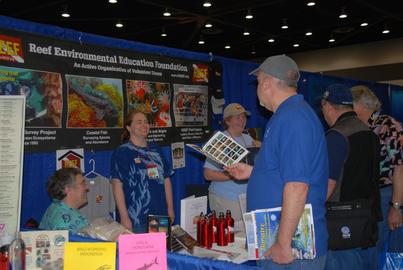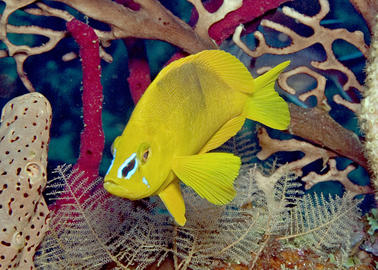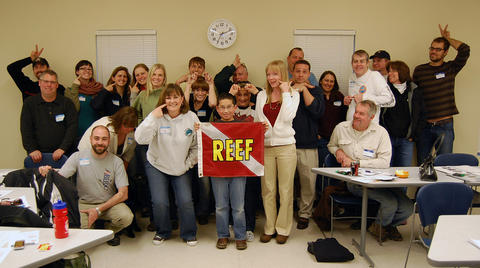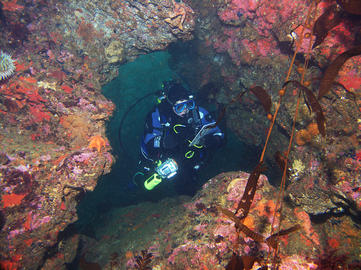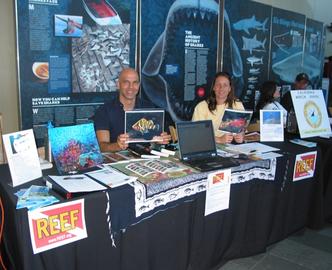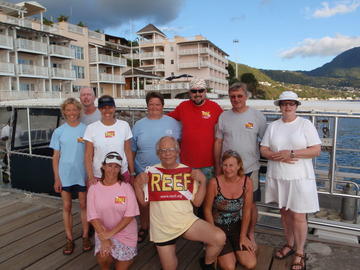REEF has been on the road this past month, and was well-represented at two prominent West coast dive shows – the Scuba Show held in Long Beach, CA, and the NW Dive and Travel Expo, in Tacoma, WA. Volunteers - composed of active surveyors and members of the Advanced Assessment Team in California, Oregon and Washington - helped staff the booths.
With summer just around the corner, things here at REEF are really getting busy. Our first Field Survey of the season just wrapped up (see the field report from Dominica below) and another group heads out next week to Belize. Many of our Field Survey trips are already full but there is still room in a few, including your chance to explore the reefs of Key Largo with Ned and Anna DeLoach. Check out the trip schedule here.
Hamlets are a group of colourful coral reef fish found throughout the Caribbean. Ten species of hamlet have been discovered and each can be easily recognized by its own distinct colour pattern. In some areas, as many as seven varieties can be found on a single reef. However, most hamlet species are only found at specific locations. The blue hamlet, for example, is found only in the Florida region. How these very different looking, yet very closely related species came to be has been a a subject of debate among scientists.
As all of you Caribbean fiswatchers know, hamlets are a group of colourful coral reef fish found throughout the Caribbean. Ten species of hamlet have been discovered and each can be easily recognized by its own distinct colour pattern. In some areas, as many as seven varieties can be found on a single reef. However, most hamlet species are only found at specific locations. The blue hamlet, for example, is found only in the Florida region. How these very different looking, yet very closely related species came to be has been a a subject of debate among scientists.
Tired of not knowing who’s who on your underwater adventures? REEF is again offering FREE marine life ID classes this year in California. REEF Instructor and Outreach Coordinator Janna Nichols will be teaching these fun and informative classes at several locations. Learn how to identify many common California fish, invertebrates and algae, and how to do REEF surveys and become part of this worldwide citizen science program. This class will change the way you dive. Find one near you and join the fun!
California Fish ID:
REEF is proud to release the latest version in our series of instructional marine life identification courses – Fishwatching in California. The California curriculum consists of three courses on one CD – divided into Southern California, Channel Islands, and Central/Northern California. Pictures and text are included and are geared for anyone interested in teaching Fish ID – ideal for dive shops and instructors, dive clubs, marine science centers and aquariums, and other groups.
West Coast Dive Shows - Visit REEF next month at SCUBA 2010 show in Long Beach (CA) on May 15-16 and the Dive & Travel Expo in Tacoma (WA) on May 22-23. REEF staff and volunteers will be there to tell you about our latest activities, have REEF gear and supplies for sale, and sign up new members.
Each month, we get questions from our surveying members about the ins and outs of conducting REEF surveys, submitting their data online, and accessing those data. Here's a compilation of some of the most frequently asked questions. The survey scoop -- all in one place!
Last week, we kicked off the 2010 REEF Field Survey season with a spectacular trip to Dominica. Eight REEF members (and two non-diving spouses) headed out for 5 days of excellent dives with many wonderful discoveries along the way.

